

Water
The Central Tongu District Assembly is served by the Community Water. Majority of the residents in the District have access to piped water indoor or public water sales point.
Major problem facing the water company are:
1. Intermittent water supply
2. Long service lines and its attendant problems
3. Inadequate logistics for efficient service delivery.
4. PVC pipelines are weak and must be replace with HDPE pipe lines
5. Inability of the customers to pay water tariff on time
SANITATION
Environmental Sanitation is an essential factor contributing to the health, productivity and welfare of the people of Ghana. It was identified in Ghana's Program of Economic and Social Development set out in vision 2020 as a key element underlying Health and Human Development.
The Government's National Environmental Action Plan for 1991-2000 also places a high priority on Environmental Sanitation as well as the establishment and implementation of Environmental and health standards.
As a result of this, greater emphasis must be placed on Environmental Sanitation in the allocation of National Development Resources with defined systematic approach and framework within which those resources can be used most efficiently.
The two main types of waste are solid and liquid. The Environmental Health Unit responsible for the cleanliness of the District has a well sought out Plan in place for refuse (solid and liquid) waste disposal. Refuse containers are sited at various Sanitary places in the District.
These Communal Containers are strategically placed to provide refuse collection services to predominantly Low Income Communities. There is 1 Waste Contractors registered with the Assembly that is Zoomlion Ghana Limited.
These contractors distribute litter bins and provide collection services to registered clients in their respective homes. The District can also boost of final disposal site for both liquid and solid waste.
The construction of houses in the District does not come with provision for toilet facility just a few, therefore increasing the practice of open defecation in the District.
As a result of this problem there is a high dependence on the public toilet facilities in the District. The sensitization of landlords to provide household toilet facilities through the help of environmental health officers has contributed tremendously making a massive progress in getting households install bio fill toilet facilities in their various houses.
Inadequate drains in some areas of the District is one of the major problems facing the District. Most of the residential areas do not have well engineered drainage facilities and the few existing ones are chocked with solid waste. As a result of the limited number of drains and smaller capacity of existing drains, Liquid waste and rain water have therefore formed gullies around houses.
Due to its orientation, the liquid waste normally stagnates and becomes breeding grounds for mosquitoes. They serve as generic points for water-borne diseases like diarrhoea, cholera, bleeding ground for mosquitoes among others recorded in the District.
Challenges for Water and Sanitation
1. Poor Attitude of Citizenry towards the Environmental sanitation and hygiene
2. High prevalence of open defecation
3. High user fee for sanitation services
4. Limited Sewerage coverage
5. Poor drainage systems
6. Weak enforcement of environmental laws and regulations
7. Improper disposal of solid and liquid waste
8. Air and Noise Pollution,
9. Inadequate water supply;
Water Security
Generally, the District is well drained. Pipe-borne outside dwelling among households’ remains the major source of drinking water. About 97% of the population has access to potable water.
Date Created : 11/21/2024 12:00:00 AM

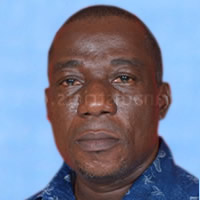
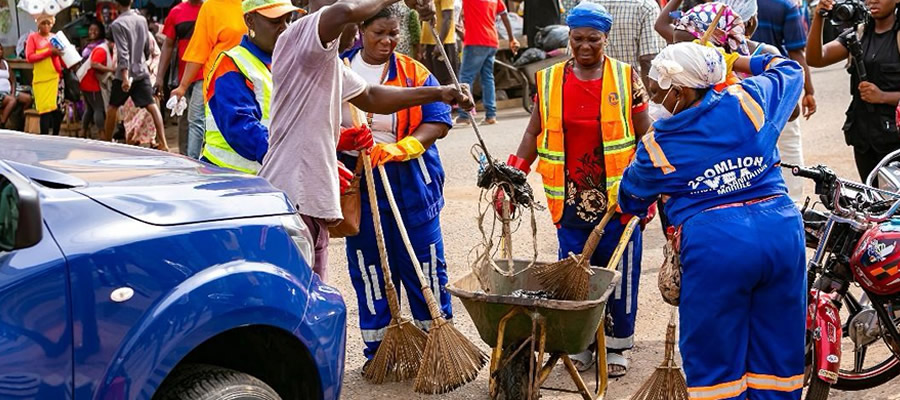
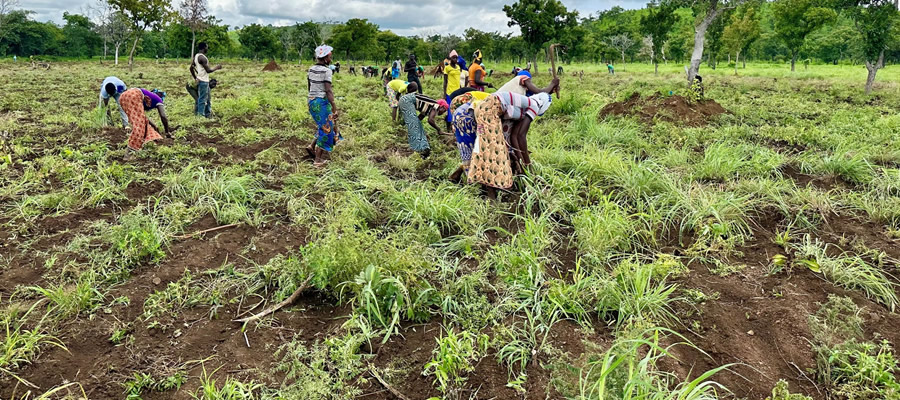
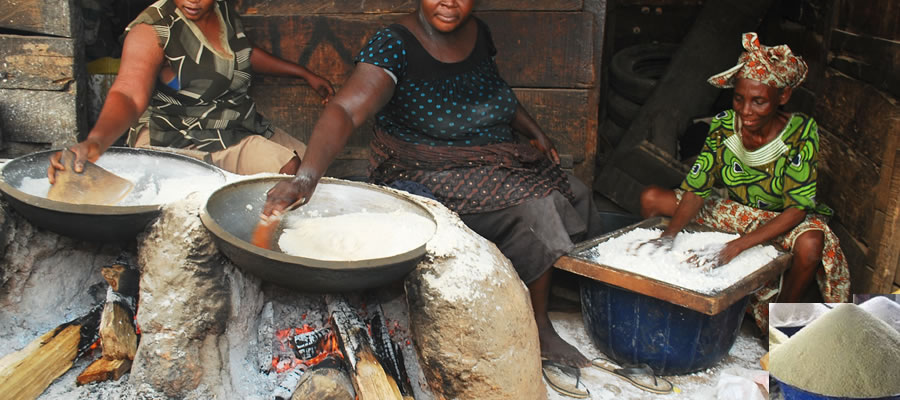
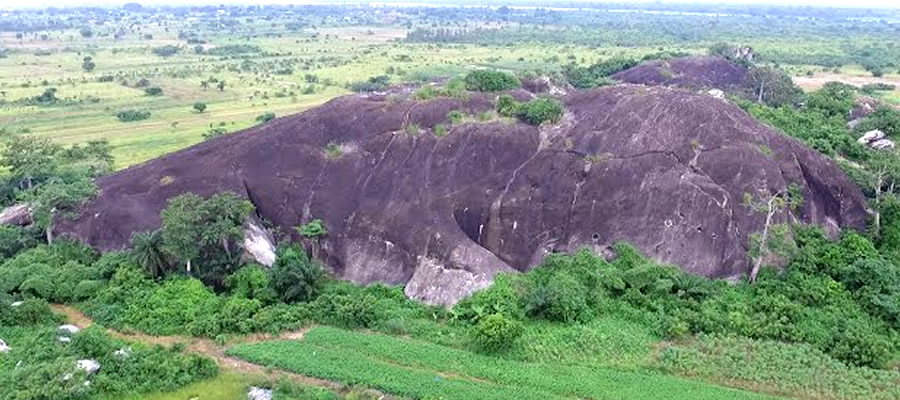





 facebook
facebook
 X
X
 Youtube
Youtube
 instagram
instagram
 +233 593 831 280
+233 593 831 280 0800 430 430
0800 430 430 GPS: GE-231-4383
GPS: GE-231-4383 info@ghanadistricts.com
info@ghanadistricts.com Box GP1044, Accra, Ghana
Box GP1044, Accra, Ghana